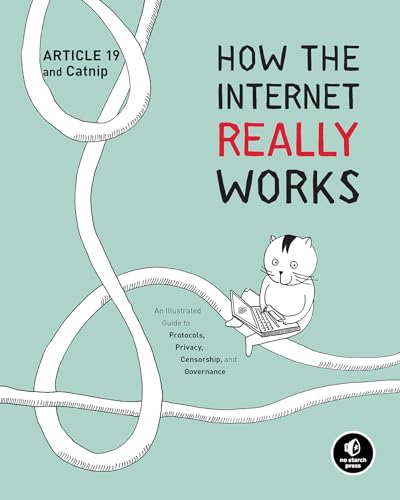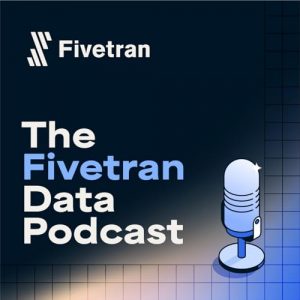Exploring the Complex Landscape of Internet Governance
In today’s digital age, the internet has become the backbone of global communication, commerce, and community. Yet, with such power comes an array of challenges regarding governance, regulation, and policy. Understanding how the internet works, the frameworks that guide it, and the implications of its governance is vital for anyone navigating this vast frontier. From issues of privacy and censorship to the dynamics between stakeholders, a solid comprehension of internet governance enables us to appreciate the intricacies of this indispensable resource.
As the world moves towards an ever more connected future, it is crucial to stay informed about the latest discussions and developments in internet governance. These books offer profound insights and varied perspectives on the matter, whether you are a policy maker, an academic, or simply an inquisitive reader. Here is a curated selection of essential reads that will deepen your understanding and enhance your critical thinking about the governance of the internet.
Top Picks for Internet Governance Enthusiasts
How the Internet Really Works: An Illustrated Guide to Protocols, Privacy, Censorship, and Governance
This meticulously crafted book serves as an accessible introduction to the complex world of internet protocols, privacy issues, and governance challenges. Utilizing engaging illustrations, the author breaks down intricate topics into digestible pieces, ensuring readers of all backgrounds can grasp the essentials of how the internet operates. This book is not just beneficial for beginners; even seasoned professionals can glean fresh insights. With an emphasis on real-world implications, it navigates through pressing issues like censorship and privacy debates, making it a must-read for anyone seeking to understand the backbone of modern communication.

Researching Internet Governance: Methods, Frameworks, Futures (Information Policy)
This academic text dives into the methodological underpinnings of internet governance research. Offering a critical lens on various frameworks that shape policy-making, it equips scholars, students, and practitioners with the tools necessary to dissect and evaluate future pathways for the internet. The book brings an interdisciplinary approach, integrating political science, sociology, and information technology, making it remarkably relevant in today’s multifaceted landscape of internet governance. Its insights are invaluable for anyone serious about contributing to or studying the evolution of digital governance formats.

Speech Police: The Global Struggle to Govern the Internet (Columbia Global Reports)
This timely discussion offers a thought-provoking narrative on the emerging phenomenon of ‘speech policing’ in the digital age. It explores how various governments, corporations, and civil society actors influence what can be said online. This book is essential for understanding the power dynamics at play in the context of free speech, censorship, and internet governance. It not only details the strategies employed across the globe but also raises philosophical questions about freedom and regulation in the digital space. An eye-opening read that challenges conventional wisdom regarding the internet as a bastion of free expression.

Global Internet Governance: Principles and Policies
This comprehensive tome traverses the principles and policies that underpin global internet governance while tackling key challenges that arise within it. The author compiles a wealth of knowledge that is crucial for policymakers and industry leaders alike. A closer examination of regulatory frameworks, stakeholder relationships, and the multifaceted nature of governance elucidates the complexity and importance of strategic policymaking in this sector. By synthesizing diverse political, social, and economic factors, this book equips the reader with the foundation needed to understand the broader implications of internet governance in contemporary society.

Controlling Cyberspace: The Politics of Internet Governance and Regulation
Examining the political aspects of internet governance, this book addresses how various entities seek to control and regulate cyberspace. As debates around sovereignty, privacy, and security intensify, the challenges presented in this narrative prompt critical reflections on the future of the internet. Employing case studies from various nations, it showcases the conflicts and negotiations underlying digital governance, making it an essential read for those interested in the intersection of politics and technology.

Rising China and Internet Governance: Multistakeholderism, Fragmentation and the Liberal Order in the Age of Digital Sovereignty
This compelling work tackles the implications of China’s rise on global internet governance frameworks. It investigates how multistakeholder approaches could be affected by the increasing fragmentation of the internet, raising questions about sovereignty and societal control. A critical analysis that is required reading for anyone interested in international relations and global governance, it delves into the complexity of current debates surrounding sovereignty in digital communication.

Global Standard Setting in Internet Governance
This insightful book discusses the mechanisms of global standard-setting processes in internet governance. It equips readers with knowledge on how various standards are established, who sets them, and the implications these standards carry. Given the rapid development of technology and the universality of the internet, this volume offers crucial insights for anyone looking to understand the intricacies of standardization in a digital context, and the implications they have on global governance.

United Nations Internet Governance: A Proposal for a United Nations Convention on Cybercrime
This visionary work proposes a structured approach for dealing with cybercrime under the auspices of the United Nations. Given the borderless nature of the internet, the author argues convincingly for a global framework that enhances cooperation among nations. The proposal addresses the need for a cohesive response to the challenges posed by cybercrime and enhances our understanding of the role international organizations play in maintaining order in our increasingly connected world.

The Global War for Internet Governance
In this gripping analysis, the author discusses the various forces at play in the battle for control over the internet. Competing ideologies, national interests, and the push for regulation feature prominently in this narrative that seeks to explain the tension between global governance and individual liberties. A compelling read for anyone invested in understanding the geopolitical dynamics of the internet, it’s an essential addition to any discussion around internet freedom and governance.

Will the Internet Fragment?: Sovereignty, Globalization and Cyberspace (Digital Futures)
As a critical exploration of the concept of internet fragmentation, this book raises essential questions about the balance between sovereignty and globalization. It examines trends and phenomena that potentially threaten the open nature of the internet and challenges readers to rethink their perspectives on global connectivity and local governance. This thought-provoking work is pivotal for understanding the future of internet governance in an increasingly divided world.





































